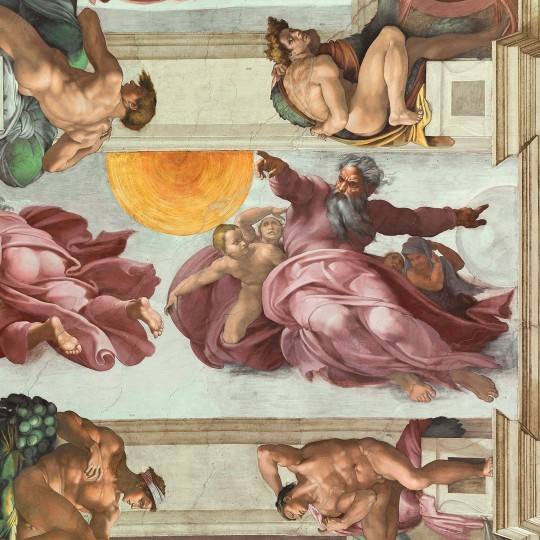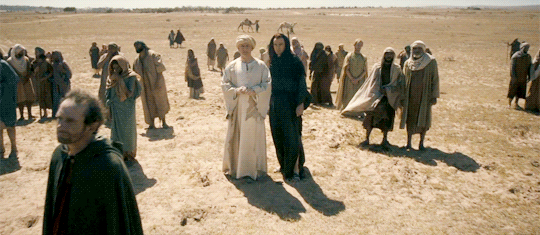#c: deuteronomy
Explore tagged Tumblr posts
Text
Shiki Mistoffelees is suave and cocky and always confident, and Munkustrap will just... make sure sillabub doesn't get too close to whatever he's cooking up.

... but when he succeeds... suddenly even this cheeky little Munk-assistant just can't be sure of it.

Munkustrap encourages Sillabub toward their returned leader, and only then notices Mistoffelees' terror...

The careful tender approach...!

And there are our happy zoomy spinnies again. 😌

(Can't forget priorities though: must retrieve our beautiful assistant Bombalurina!)


Shiki production, Nagoya 20/7/2000.
?Tokihiko Sakamoto as Mistoffelees, Shoichi Fukui as Munkustrap, ?Tomomi Hayashishita as Bombalurina, Kenzo Ishii as Deuteronomy, Eriko Murata as Sillabub.
#shiki#2000 shiki#s: mistoffelees#c: mistoffelees#c: munkustrap#c: jemima#c: sillabub#jemimaxmunkustrap#munkustrapxsillabub#mistoffeleesxmunkustrap#c: bombalurina#bombalurinaxmistoffelees#deuteronomyxmistoffelees#c: deuteronomy#mistostrap#munkoffelees#tokihiko sakamoto#shoichi fukui#tomomi hayashishita#kenzo ishii#eriko murata
73 notes
·
View notes
Text
For the two in the back, I vote “Skimbleshanks trying to work out how to get Pouncival down from there.”

old deuteronomy has learned that human fathers are oftentimes "out for milk". unwilling to shirk this duty, he too sets out for the closest catvenience store to make sure none of his 467 children are left milkless.
1K notes
·
View notes
Text
Spoken Word.


Added on to the unspoken…
in those damn jackets.. 🙃
For women. ✊🏾
#active psalms#c natural#harmonic alignment#checkerboard chemistry#the monologue continues#Deuteronomy Breach#orange#random sample#realm of eldering
3 notes
·
View notes
Text
The Four Dimensions of God's Love: How God Loves You Completely
Paul spent more than two years in Ephesus, so it stands to reason that he knew people there pretty well. He preached and taught in that crossroads city so effectively that Luke says “all of the Jews and Greeks who lived in the Province of Asia heard the word of the Lord.” (Acts 19:10) When he wrote to them in Ephesians, Paul mentions the four dimensions of God’s love as if everyone knew about…
#Acts 19:10#C. S. Lewis#Deuteronomy 6:4-5#dimensions#Ephesians 3:17-18#four dimensions#God#Jesus#John 12:24#John 3:16#Matthew 22:37
0 notes
Text
Jehovah, Jehovah, Jehovah!... No, actually, it's Yahweh,
A somewhat notable Deity considered by the ancient Israelite people their National God and first attested from the early 9th century BCE.¹

This c. 1518 painting by Raphael is based on a mystical vision of 𒀭Yahweh attributed to the prophet Ezekiel who belonged to a priestly lineage said to be descended from the legendary Joshua. Ezekiel was active during the time the Kingdom of Judah was conquered by the Neo-Babylonian Empire in the early 6th century BCE. (Public domain)
𒀭Yahweh was also apparently worshipped among the Edomites, the Israelites' southern neighbors, based on a reference to “Yahweh of Teman” in an inscription on an early 8th century BCE jar discovered at the site of Kuntillet ʿAjrud in the Sinai with Teman being a major Edomite clan.¹ It's believed the ʿAjrud outpost was established by the northern Kingdom of Israel as the region fell into their domain after a botched invasion by the southern Kingdom of Judah. The two kingdoms were also under the influence of the Neo-Assyrian Empire at this time with contemporaneous Assyrian records noting both Judahite and northern Israelite representatives at the capital city of Kalkhu (known as Nimrud in modern times).²


Illustrations of the two vessels from Kuntillet ʿAjrud with translations. It's debated if the 𒀭Bes-type figures on Pithos A are meant to depict 𒀭Yahweh and His Consort 𒀭ʾAsheratah, but it should be noted the righthand figure does not actually have visible genitals as the outdated illustration here shows.³ (Source)
Although 𒀭Yahweh is primarily associated with monotheistic religion nowadays for obvious reasons, historical evidence indicates He was first worshipped in a polytheistic context as the Israelite culture distinguished itself from the Canaanite milieu it emerged from. This can even be seen within the Hebrew Bible; A wonderful example is found in the Book of Habakkuk in the form of an archaic Hebrew poem describing 𒀭Yahweh and His Company including the Plague-God 𒀭Resheph (His Name is usually mistranslated as “plague” in English Bibles) battling sea monsters. Another one of the most noted can be seen in the Book of Deuteronomy and indicates 𒀭Yahweh was probably worshipped as One of the Seventy (symbolically “many”) Sons of 𒀭ʾEl:
⁸ When ʿElyon apportioned the nations, when He divided humankind, He fixed the boundaries of the peoples according to the number of the Gods; ⁹ Yahweh's own portion was His people, Jacob His allotted share.
Deuteronomy 32:8–9 (adapted from the New Revised Standard Version, Updated Edition, 2021)
𒀭Yahweh very much fits the form of other Storm-Gods worshipped in cultures of the Syro-Palestinian region during the Iron Age. The other most famous example of such a Deity is the Levantine manifestation of 𒀭Baʿal Who is cast as 𒀭Yahweh's greatest Rival in the collection of texts within the Hebrew Bible known as the Deuteronomistic history, although the presence of 𒀭Baʿal's name at ʿAjrud would suggest this conflict is a later development. It's even been proposed 𒀭Yahweh was originally associated specifically with destructive elements of weather such as flash floods.⁴ Although there are some respectable academic claims of pre-Israelite attestations of 𒀭Yahweh from the Late Bronze Age, none of these are secure and all of them are very much contested.⁵ The scholar Christian Frevel also fascinatingly proposed in 2021 that 𒀭Yahweh was the tutelary Deity of the Omride clan which came to rule the northern Kingdom of Israel for over a century and established its capital of Samaria.¹

A modern artistic impression of a ritual performed by ancient Israelites at the Temple of 𒀭Yahweh in Jerusalem during the Iron Age. The dedication of the Temple in Jerusalem built by King Solomon (c. 1910) by William Hole. (Public domain)
The emergence of monotheism from traditional Israelite belief is an incredibly convoluted topic that I don't intend to get into the weeds of here. One of the most recognizable milestones therein, though, was the religious reforms of King Josiah of Judah shortly before our dear Ezekiel's time. This saw the absolute consolidation of religious authority in the Temple of 𒀭Yahweh at Jerusalem and even the forced closure of all other cultic sites in Judah. However, there's also direct evidence that 𒀭Yahweh continued to be worshipped among other Gods and Goddesses well after the monotheistic, Jerusalem-centric religion which came to be known as Judaism had entered its Second Temple Period.
Most notably a community of Israelites living on the island of Elephantine at ancient Egypt's southern frontier had a Pantheon in which 𒀭Yahweh was associated with the Goddess 𒀭ʿAnat and another God named 𒀭Bethel.⁶ They even had Priestesses of Yahweh and were apparently on good terms with Jerusalem as indicated by the Aramaic-language texts written in Egyptian Demotic script discovered at Elephantine. An analysis of the narrative of Aaron's Rod in the Book of Numbers has also led to the alluring proposition that worship of the famous 𒀭ʾAsherah as 𒀭Yahweh's Consort may have continued even within the Jerusalemite cult itself during this period.⁷

An altar of incense discovered at the site of ancient Ta'anakh. Although it's dated to the tenth century BCE, predating any secure attestations of 𒀭Yahweh, some researchers believe the top and second-to-bottom registers are intended to symbolize Him with 𒀭ʾAsheratah likewise on the alternating registers. (Source)
There's so many fascinating developments being made in archaeology and the study of history unraveling more about the ancient Israelites and the worship of 𒀭Yahweh before our very eyes. I honestly feel incredibly privileged to be alive just in time to witness such a thing. Although I haven't “worked with” 𒀭Yahweh myself within my primarily Canaanite Pagan practice, I'd be very interested to hear and discuss different perspectives on this fascinating ancient Deity and it'd make me very happy to see what some of you think. Shulmu 𒁲𒈬 and thank you so much for reading!
Another thing
Given what part of the world this all concerns, I feel I would be morally remiss to say nothing of the genocide taking place against the Palestinian people in their homeland and particularly in Gaza. I find this important because earlier today the so-called President of the United States Donald Trump expressed the US's intent to “take over” and ethnically cleanse Gaza at a public event alongside Benjamin Netanyahu, the so-called Prime Minister of Israel. In the face of such great evil, I feel obligated by simple virtue of being a human to state I wholeheartedly support the full liberation of Palestine and an end to the unjust and unlawful occupation with all it has wrought. Arab.org is a website which allows you to support Palestinians via a simple click of a button with no donation necessary along with providing further resources. Free Palestine 🇵🇸
References
Frevel, Christian. “When and from Where Did YHWH Emerge? Some Reflections on Early Yahwism in Israel and Judah.” Entangled Religions 12:2 (March 30, 2021). https://doi.org/10.46586/er.12.2021.8776.
Na’aman, Nadav. “Samaria and Judah in an Early 8th-Century Assyrian Wine List.” Tel Aviv 46:1 (January 2, 2019): pp. 12–20. https://www.academia.edu/43169801.
This was clarified by archaeologist Ze'ev Meshel in communication with Nir Hasson reporting for Haaretz, https://www.facebook.com/share/1JASsUsdcN.
Fleming, Daniel E. “Yahweh among the Baals: Israel and the Storm Gods.” Essay. In Mighty Baal: Essays in Honor of Mark S. Smith, edited by Stephen C. Russel and Esther J. Hamori, pp. 160–74. Harvard Semitic Studies 66. Leiden, Netherlands; Boston, Massachusetts, United States: Brill, 2020.
Pfeiffer, Henrik. “The Origin of YHWH and its Attestation.” Essay. In The Origins of Yahwism, edited by Markus Witte and Jürgen van Oorschot, pp. 115–44. Beihefte Zur Zeitschrift Für Die Alttestamentliche Wissenschaft 484. Berlin, Germany; Boston, Massachusetts, United States: De Gruyter, 2017.
Cornell, Colin. “Judeans and Goddesses at Elephantine.” Ancient Near East Today 7:11 (November 2019). American Society of Overseas Research (ASOR). https://www.asor.org/anetoday/2019/11/Judeans-and-Goddesses-at-Elephantine.
Eichler, Raanan. “Aaron’s Flowering Staff: A Priestly Asherah?” TheTorah.com, 2019. https://www.thetorah.com/article/aarons-flowering-staff-a-priestly-asherah.

My interpretation of the Blessing of ʾAmaryaw inscribed on Pithos B from Kuntillet ʿAjrud (pictured)
Be in peace!
May you be blessed to 𒀭Yahweh of Teman and 𒀭ʾAsheratah;
May they bless you and keep you and be with you always.
Praises to 𒀭Yahweh of Teman and 𒀭ʾAsheratah!
All they beseech of one is to act with compassion,
And 𒀭Yahu will give them according to their heart.
May the days be long and satisfied in their good time
For the sake of 𒀭Yahweh of Teman and 𒀭ʾAsheratah,
As 𒀭Yahweh of Teman and 𒀭ʾAsheratah favor the kindhearted.
#ancient history#ancient near east#history#pagan#paganism#semitic pagan#semitic paganism#ancient levant#baal#bronze age#iron age#canaanite pagan#canaanite paganism#canaanite#canaanite polytheism#yahweh#yhwh#el#asherah#anat#resheph#canaan#israelites#israelite#ancient israelite#ancient religion#ancient egypt#elephantine#polytheist#polytheism
65 notes
·
View notes
Note
Okay, question about your Camp Nephilim premise (which I love) Aren't the Nephilim supposed to be, to oversimplify, bad? In the way they were made from angels losing their total devotion to HaShem and giving into carnal relations. And then the way they're framed seems to put them not as Jews but as our oppressors, like Amalek, Philistines, Edomites, Babylonians, Ishmaelites, Romans, etc. I think their directly tied to at least the Philistines (Goliath). I think Moses fights some of them in the desert too. Talking midrash and stuff. Idk if negative framing of Nephilim is just a Christian re-interpretation ("fallen angels") or what. I know Evangelical fundamentalists get really into conspiracy theories about them for some reason. I'm just wondering if your concept is inspired by a different idea of them.
Right. So the quick and simple answer is no. My concept wasn't inspired by an alternative view of the Nephilim. But I do think this is still workable.
The reason I went with the Nephilim is because I've seen interpretations in the past that this verse from Genesis is an answer to stories about demigods from surrounding cultures. As a result, the Jewish monotheistic view casts them as a problem. The verse itself seems to indicate, in context, that they were one of the reasons for the flood. In certain Midrashim, they are children of rebellious angels - I think they correspond with the traditions in the book of Enoch, but I didn't read it yet so I can't really say. My point with keeping this in the camp is essentially that it stands for already existing Nephilim: children whose parents already went and interbred with humans. There's no reason to start disqualifying them from existence because their parents sinned, and Nephilim seems to be the best term for this kind of things.
Now, in your point you connected the Nephilim to the Refa’im, if not completely consciously so. Though to be fair, the Gemara (Niddah 61A) already did that, as well as the very same Midrashim that talk about Nephilim. Plus, the only time Nephilim are mentioned in the Tanach outside of Genesis is when the Spies tell Moshe that they encountered giants of the Nephilim in Canaan. This, together with verses in Deuteronomy talking about the various nations of Refa’im around the eastern bank of the Jordan river and referring to them as giants as well, led to the identification of the Refa’im as Nephilim. The Midrash (Bereshit Rabah Parsha 26) treats those as two different names for the same group.
The Refa’im aren't exactly described as evil in the same way ‘Amalek is. By the time the Israelites got to Canaan they were largely extinct - see Deuteronomy chapters 2-3, ‘Og is described as one of the last remaining, while the Moabites and Amonites (and possibly Edomites and Pelishtim) killed most of them. In addition to C(e)darla‘omer killing them (Genesus 14, 5) centuries earlier. There are a couple of giants said to still exist in Canaan when the Israelites go there - Aḥiman, Sheshay and Talmay in Hebron, and the children of Harafah (while it's spelled differently than Refa’im, it's possible that this is what it refers to) from the land of the Pelishtim. G-d promised the land of the Refa’im to Abraham (Genesis 15, 20), so in essence... They are conquered people, pretty much. And because they're practically extinct, there isn't much said to vilify them.
The fallen angels thing is... kind of complicated. Judaism doesn't really have the common Christian view of Lucifer and the rebellious angels. By which I mean, no such story exists. There are, however, references to fallen angels of sorts. I think it's related to the story in the book of Enoch - but the book is not canonical to the Tanach, and I'm not sure if there's a clear detailing of this in sources widely accepted in Judaism. I do have a couple of things to say about angels in Jewish sources (especially in the Tanach), but this isn't the place for that.
The Nephilim themselves, if we identify them as Refa’im, are indeed not Jewish. But in the world of Percy Jackson, where you have powerful entities calling themselves gods and breeding with humans, sooner or later you might find Jewish descendants of such a union. And the best Jewish term for those would be Nephilim. Hence the name.
#jumblr#judaism#jewish fantasy#tanach#asks#Tanach asks#Fantasy asks#camp nephilim#pjo#percy jackson#demons#Refa’im#Hope i didn't ramble off too much
14 notes
·
View notes
Note
mormons are christians
I'm going to have to respectfully disagree with you, anon. There are some key theological points historically shared by the rest of orthodox Christianity that the LDS Church does not share with the rest of Christianity.
(What I am about to say here presumes that by "Mormons", you mean "LDS", since that's commonly how the term is used. I am less familiar with trinitarian Mormon groups such as the CoC, so I don't feel comfortable getting into all that here, and I feel like that's another post anyway.)
((I am also aware that my explanation may be misconstrued as me biting your head off. That's not my intention at all, and I apologize profusely if it reads that way. I've just done a lot of digging into LDS theology and history over the years, and I wanted to give a rundown of why I understand this issue in the way that I do.))
(((This is also about to get really long and unwieldy so. Apologies for that too.)))
The LDS Church teaches a fundamentally different view of the nature of God. Little-o orthodox Christianity is trinitarian. Not going to get into any biblical defenses of the Trinity here, because I feel like other people have explored it in much more depth, but suffice it to say this is a very old and long-accepted doctrine. Protestants, Catholics, etc. are all in agreement here.
By contrast, LDS theology uses the language of three separate beings united in one purpose. This is particularly apparent in the Book of Abraham, which refers to "the Gods organiz[ing] and form[ing] the heavens and the earth" (Abraham 4:1, emphasis mine). In addition, LDS theology depicts God the Father as an exalted man (see the King Follett Discourse for more on that) and ascribes a physical body to Him (D&C 130:22), which is unheard of in orthodox Christianity.
Furthermore, LDS theology teaches a fundamentally different relationship between God and His People. In orthodox Christianity, when we speak of God as our Father, there is an understanding that we are not His literal children in a biological sense (John 1:12-13). Instead, God being described as our Father is one of various images that He uses in order to communicate His love for His people. As another example of this kind of language in action He is also described as our Husband (e. g. Isaiah 54:5, Ezekiel 16:32, Hosea). This is because God's love for us is so vast and so deep and so complete that it is impossible to use just one analogy and encapsulate all of it perfectly. (I'd argue it's also because the magnitude of God's love is what makes all these other forms of love possible. We love because He first loved us, after all.)
In LDS theology, however, this Father-Child relationship language is not an analogy. It's literal. We are the biological spirit children of a Heavenly Father and a Heavenly Mother.
The Heavenly Mother is another aspect of this that is very different from Christianity. In LDS Theology, God is held to be actually male, with a male body and a wife. In Christianity, God is neither male nor female. We may use masculine language to refer to God ("Father", "Son", "He", etc.), and Jesus chose to take the form of a human male, but Scripture also uses feminine language to describe God through the language of motherhood, childbirth and breastfeeding (e. g. Deuteronomy 32:18, Isaiah 49:15, Isaiah 66:13, Isaiah 42:14), and various orthodox Christian theologians have leaned into that language (Julian of Norwich, for example).
I say all that not out of sensationalism or because I want to showcase how "weird" I think LDS beliefs are. All religions are weird (and heck, all of human existence is weird, if we're really honest about it). All of that to say, I'm saying this because it's necessary background to the LDS conception of who Jesus is.
In LDS theology, Jesus is the eldest of Heavenly Father and Heavenly Mother's spirit children (and therefore, our elder spirit brother), who volunteered for the role of Savior in our preexistence. Satan is Jesus' younger spirit brother, who was cast out of Heaven for trying to take away humanity's free will. Jesus was later exalted to the status of godhood after His resurrection.
In the event that someone tries to claim I am making all this stuff up or misrepresenting LDS beliefs, the LDS Church is completely transparent about this aspect of their theology:
"Every person who was ever born on earth is our spirit brother or sister." (Spirit Children of Heavenly Parents)
"In harmony with the plan of happiness, the premortal Jesus Christ, the Firstborn Son of the Father in the spirit, covenanted to be the Savior. Those who followed Heavenly Father and Jesus Christ were permitted to come to the earth to experience mortality and progress toward eternal life. Lucifer, another spirit son of God, rebelled against the plan and 'sought to destroy the agency of man.' He became Satan, and he and his followers were cast out of heaven and denied the privileges of receiving a physical body and experiencing mortality." (Premortality)
"The Savior did not have a fulness at first, but after he received his body and the resurrection all power was given unto him both in heaven and in earth. Although he was a God, even the Son of God, with power and authority to create this earth and other earths, yet there were some things lacking which he did not receive until after his resurrection. In other words he had not received the fulness until he got a resurrected body" (Joseph Fielding Smith)
"And I, John, saw that he received not of the fulness at the first, but received grace for grace; And he received not of the fulness at first, but continued from grace to grace, until he received a fulness; And thus he was called the Son of God, because he received not of the fulness at the first. And I, John, bear record, and lo, the heavens were opened, and the Holy Ghost descended upon him in the form of a dove, and sat upon him, and there came a voice out of heaven saying: This is my beloved Son. And I, John, bear record that he received a fulness of the glory of the Father; And he received all power, both in heaven and on earth, and the glory of the Father was with him, for he dwelt in him." (D&C 93:12-17).
Again--and I cannot stress this enough--my problem with this is not that I think it is "weird". I don't think it is exceptionally weird, and again, all religions are weird, including my own. Something being "weird" isn't enough to make it not Christian.
My issue is that this is significantly different than orthodox Christian theology. Orthodox Christian theology holds that Jesus is fully God, and has always been fully God, even as an embryo in Mary's womb. Again, fully willing to say that the orthodox understanding of the Trinity, God's neither-male-nor-femaleness, and Jesus being eternally fully God, even as an unborn baby, is all pretty bizarre.
Now, there are absolutely places where orthodox Christian denominations and theologians have disagreements about Jesus. Some of those questions are really significant ones too, like the whole miaphysitism vs. hypostatic union debate. But whatever disagreements we have, I am of the firm belief that the question of Jesus' divinity--that He was, is, and ever shall be God--is a pretty fundamental tenet of the Christian faith. For all of our squabbling, Catholics, Lutherans, Baptists, Wesleyans, Russian Orthodox, etc. have all taken that question very, very seriously. Once a religion leaves that behind, I have a hard time accepting that a member of said religion is a Christian.
I'll concede that in anthropological contexts, it's not incorrect to categorize the LDS Church as "Christian" for historical reasons. After all, various aspects of LDS practice and teaching can only be explained through the fact that Mormonism came about as a blending of various 19th century American beliefs with Second Great Awakening-era low-church American Protestantism.
And I also recognize that there are other Christians around here that would take a much broader theological stance over who is or isn't Christian than I do. But personally, looking at LDS theology and comparing it to the rest of orthodox Christianity, I would consider the LDS Church one of several American offshoots of Christianity dating to the 19th century rather than orthodox Christianity-proper.
#i'd actually argue that the whole 'spiritual milk' thing is a reference to the God-as-Birthing-Mother thing seen in the old testament#but i digress#sorry for taking so long to respond anon. finals has been going on so that's been eating up a lot of my time.#tl;dr i understand 'christian' to be in part a statement about who someone believes Jesus to be#and lds theology is in fundamental disagreement with orthodox christianity on that#if you could hie to kolob#christianity tag#anonymous#asks#live from the scriptorium
22 notes
·
View notes
Text
The cryptid belatedly remembers his Lovely Assistant.
Alexander Babenko as Mistoffelees, Oleg Fedkushov as Deuteronomy, and Svetlana Shustova as Cassandra; Moscow 2005 (X).

𝔬𝔬𝔭𝔰 𝔦 𝔩𝔢𝔣𝔱 𝔠𝔞𝔰𝔰𝔞𝔫𝔡𝔯𝔞 𝔦𝔫 𝔱𝔥𝔢 𝔳𝔬𝔦𝔡.

𝔞𝔤𝔞𝔦𝔫.
#alexander babenko#oleg fedkushov#svetlana shustova#mistocass#cassoffelees#2005 moscow#mistoffelees#cassandra cats#old deuteronomy#s: mistoffelees#deuteronomyxmistoffelees#cassandraxmistoffelees#c: cassandra#c: mistoffelees#c: deuteronomy
103 notes
·
View notes
Text
Deuteronomy is busy supporting and encouraging the train cats, when... oh no! Jemima did a mischief!

The Mistoffelees ears are just too tempting not to bap.
Mistoffelees has a deadly glare which Jemima knows better than to take seriously. All she has to do is giggle at him for it to melt into a smirk.
Vienna revival, 7 May 2022; filmed by @thunderwhenhepurrs. Lucius Wolter covering Deuteronomy, Suzie Murphy covering Jemima, Stephen Martin Allan as Mistoffelees, Anna Carina Buchegger as Rumpelteazer, Vicky Riddoch as Electra, and Meghan Peploe-Williams covering Tantomile.
#220507#cats the musical#vienna revival#2021 vienna#s: skimbleshanks#mistojem#susannah murphy#stephen martin allan#lucius wolter#meghan peploe williams#c: jemima#jemimaxmistoffelees#c: tantomile#c: mistoffelees#c: deuteronomy#deuteronomyxjemima#electraxtantomile
97 notes
·
View notes
Photo

Book of Genesis
The Book of Genesis is the first book of the Jewish scriptures and the Old Testament of the Christian Bible. Genesis takes its name from the opening line in Hebrew – beresit, ("in the beginning") – later translated into Greek as genesis ("origin"). Genesis is the first text of what eventually became designated the Pentateuch, the Jewish Torah ("teachings"): five books of the Laws of Moses.
The Documentary Hypothesis
Genesis consists of a variety of literary details: myth, hymns, prayers, sacrifices, rituals, oracles, folk tales, and historical narratives. Tradition claimed that the first five books were written down by Moses, who passed them to his general Joshua when the Israelites arrived in Canaan from Egypt. In the 19th century, the social science disciplines of archaeology, anthropology, and sociology emerged and were utilized to study ancient civilizations and ancient texts. What is noteworthy in Genesis is that several of the stories are repeated, but with varying details. At times, the God of Israel is referred to as "Lord," but at other times as "God almighty." When this occurs we also find theological differences, as well as indications of changing historical contexts that included politics.
After the period of the united monarchy under King David and his son, Solomon (c. 900 BCE), two separate kingdoms were created: the Northern Kingdom of Israel and the South Kingdom of Judah. A way to explain the formation of the text was proposed by Julius Wellhausen (1844-1918), who taught at the University of Göttingen in Germany, in what became known as the Documentary Hypothesis. As we do not know who actually wrote the biblical texts, the various elements were assigned to a source:
J, the Jahwist, or Jerusalem source The Hebrew name of God (revealed in the book of Exodus) consisted of four consonants, YHWH ("I am that I am"), described as the tetragrammaton. We have the German J, for the pronouncement of the Y sound. The later Masoretic version added vowels, which gives us the English version, Jehovah (which does not appear in the Bible). The J source utilized anthropomorphic portraits of God; "the face of God," "the hand of God." In these texts, God often visits the earth.
E, the Elohim source The E comes from a form of the Canaanite el, pluralized as representing several aspects of the godhead, but also from the tribe of Ephraim, settled in the Northern Kingdom of Israel. The E source portrays God as a more abstract being who does not come to earth, but communicates through angels.
P, the Priestly source The P source is a collective term for priestly concerns. This includes the sacrifices, rituals, hymns, prayers, and the begats of Genesis. The Hebrew begat ("brought forth") was the term for procreation. All ancient cultures emphasized bloodlines in detailed genealogies. This validated concepts and practices handed down through the generations. In oral cultures, the repeated lists of the begats may have been a way to memorize oral traditions.
D, the Deuteronomist source This source was named after the last of the five books assigned to Moses (Deuteronomy). It is a collective term for the final form of the traditions that were written down. In 722 BCE, the Neo-Assyrian Empire invaded the Northern Kingdom, and refugees from the North migrated to Judah. This may be when northern traditions were first joined to southern traditions, combining the J and E sources.
In 587 BCE, the Babylonian Empire invaded Judah and destroyed the Temple of Solomon. At that time, some Jews were taken captive to the city of Babylon. This period is known as the Babylonian exile." The theory is that the "Deuteronomist," either a person or school of scribes, completed the final redaction, or editing, of all the combined sources while in Babylon, beginning c. 600 BCE, but with further editing over the next several centuries (in a range from 538-332 BCE).
Jews Mourning the Exile in Babylon
Eduard Bendemann (CC BY-SA)
Continue reading...
31 notes
·
View notes
Note
Since I lack reading comprehension maybe you can explain what this passage in Leviticus means:
"As for the male and female slaves whom you may have, it is from the nations around you that you may acquire male and female slaves.You may also acquire them from among the aliens residing with you, and from their families that are with you, who have been born in your land; and they may be your property. You may keep them as a possession for your children after you, for them to inherit as property. These you may treat as slaves, but as for your fellow Israelites, no one shall rule over the other with harshness."
We went over this in the 19th c. but I'd love to hear your thoughts!
Sure. So with historical texts, including the Bible, you have to read them through the context in which they were written and not through a modern 21st century lens.
When you see the word "slave" here you're obviously assuming it's referring to chattel slavery but that's actually not the case.
To understand where God stands on slavery, you have to look at more than one verse in the Bible. It's a whole entire book and you can't just pull out one verse and think that makes you a theologian. In books like Leviticus, Exodus, and Deuteronomy, God was giving an entire law code to his people and all the laws were connected to each other. They weren't given as stand alone orders, which is why context is so important here.
In Exodus, the book prior to Leviticus where you got that verse, God lays out in the Mosaic law "Now one who kidnaps someone, whether he sells him or he is found in his possession, shall certainly be put to death." - Ex 21:16
This verse clearly shows that God views "kidnapping" people and selling them or if they are even found in their "possession" to be punishable by death, which is kind of weird for Him to say since you're pretty sure he condones slavery.
There's also a verse in Deuteronomy 23 that says "You shall not hand over to his master a slave who has escaped from his master to you. He shall live with you in your midst, in the place that he chooses in one of your towns where it pleases him; you shall not mistreat him."
So if God has outlawed kidnapping people, selling people, and has deemed that if a person working for you wants to leave they are free to do so and you should not force them back or mistreat them, it certainly seems that he's outlawed all the main components of slavery.
And now we get to that verse in Leviticus.
You have to remember the Bible was not written in English and the Hebrew word used here for slave, in this context, really would mean something more like a servant or employee.
And it makes sense, as you have the word "acquire" in the verse to understand it more like hire especially since we know in Exodus God outlawed selling people so it wouldn't make any sense for him to condone it in Leviticus.
The only time the Bible is "condoning slavery" is when it's a case of voluntary servitude. Slavery, back in the time the Bible was written, was not the chattel slavery you are familiar with today. It was often used as a way to pay debts. People would agree to work for someone else for a specified period of time in order to pay off a debt and then once they had fulfilled their agreement they were free to go. It was not cases of people being enslaved and forced to work for someone else with no compensation against their will.
If you read more than that one verse whenever God is "condoning slavery" this is the kind of slavery he's talking about and he puts most of the power of the slave/master relationship with the slave as he is allowed to leave whenever he wants and if it would by chance be a lifelong arrangement that would only occur if it was by the slave's choosing.
So the verse you pulled is not an endorsement of enslaving people it's essentially God saying you can "hire" people from all those groups.
The word property sounds harsh because in English it is a harsh word but remember the Bible wasn't written in English and in Hebrew it's essentially the equivalent of a boss referring to someone as "their" employee.
85 notes
·
View notes
Text
omg 😂
When Jo Lucy Rackham's covering Rumpelteazer, she and Jan-Eike Majert's Mungojerrie are irrepressible trouble. And Cassandra (Anneke Brunekreeft) is having none of it 😒
Also Florian Fetterle as Munkustrap, Stephen Martin Allan as Mistoffelees, and Petra Ilse Dam as Tantomile.





NO TOUCH!
[Vienna Revival, March 2022]
#220329#jo lucy rackham#jan eike majert#anneke brunekreeft#mungojerriexrumpelteazer#cassandraxmungojerrie#cassandraxrumpelteazer#s: old deuteronomy#florian fetterle#petra ilse dam#vienna revival#2021 vienna#c: cassandra#c: mungojerrie#c: rumpelteazer#c: munkustrap#c: tantomile
94 notes
·
View notes
Note
Are you willing to condemn the racism the Mormon church has taught you?
The church has been wrong on Racism, Patriarchy, Misogyny and Anti-queerness.
One message that is given in scriptures in different ways is that God loves us all and treats us the same, and we should do likewise.
Deuteronomy 10:17 - For the Lord your God is God of gods and Lord of lords, the great God, mighty and awesome, who shows no partiality and accepts no bribes.
Mark 12:31 - The second is this: ‘Love your neighbor as yourself.’ There is no commandment greater than these.”
John 13:34 - “A new command I give you: Love one another. As I have loved you, so you must love one another.
Acts 10:34 - Then Peter began to speak: “I now realize how true it is that God does not show favoritism
Romans 2:11 - For God does not show favoritism.
Romans 10:12 - For there is no difference between Jew and Gentile—the same Lord is Lord of all and richly blesses all who call on him,
Galatians 3:28 - There is neither Jew nor Gentile, neither slave nor free, nor is there male and female, for you are all one in Christ Jesus.
Colossians 3:11 - Here there is no Gentile or Jew, circumcised or uncircumcised, barbarian, Scythian, slave or free, but Christ is all, and is in all.
2 Nephi 26:33 - ...black and white, bond and free, male and female; … all are alike unto God
Furthermore, the Book of Mormon can be seen as a cautionary tale about a group of violently racist misogynists who wound up getting annihilated explicitly because they would not stop being violently racist misogynists. It also teaches that pride and wealth inequality doom civilizations. Too many Mormons view the Nephites as the heroes of the Book of Mormon and want to be like them, but D&C 38:39 warns us, "lest ye become as the Nephites of old."
48 notes
·
View notes
Text
When Crowley met Jesus, and the other demon at Golgotha
You know the scene. 33AD. Aziraphale is watching the crucifixion take place and certain fem-presenting demon sidles up to him.

Aziraphale greets them, and finds out they have changed their name.
"What is it now?" he asks them. " Mephistopheles? Asmodeus?"
I know most you have learnt by now that Asmodeus is the demon of lust, and this is obviously Aziraphale's idea of a flirty little joke (perhaps the first we see? because he's the one who's really as "mad as bag of frogs" after all and that's why Crowley's made an appearance, because he was probably just in the area, you know...), but I haven't seen or come across much meta about the first suggested name, which is a GO "lead balloon" moment.
Mephistopheles, Aziraphale? That's the name you thought of here? Of all places? jfc...you bad, bad angel! lmoa! This is a serious, sombre situation you are witnessing!
Mephistopheles is the name of the fictional demon sent to do a deal with the character Faust in a story that dates back to Germany in the early 1500s. Faust was a like a scientist in his day, well educated in things like alchemy and astrology and other mystical arts, maybe even having wizard powers (why not?) But he was hungry for more power so he did a deal with the devil for 24 years of assistance to achieve and gain anything he desired, and at the end of that time he would be claimed by Hell. Needless to say, despite starting off well it didn't have a happy ending. (I wont go into details as there are lots of variants, and its not that short, and they aren't all that relevant to the point of the post.)
It has been a hugely influential story ever since, appearing in many forms over the years; in opera, theater, movies, novels, adaptations such as Oscar Wilde's The Portrait of Dorian Grey, and Queen's famous song Bohemian Rhapsody. Terry Pratchett also did a parody of it in his 1990 book Eric, and readers have often noted the similarity to the Hell depicted there to the Hell in GO.
Its the origin of the idiom "to do a deal with the devil" and a Faustian bargain. The mortals that enter into the deal with a powerful supernatural entity are usually set up to fail, and we go along with it because we are so used to the trope, its one we've come to expect the bargainer to fail in some spectacular fashion. It's one that keeps being repeated again and again because it so interesting to explore - often the protagonist is looking for some form of happiness, sometimes revenge, and hopes the deal will deliver, but find out the hard way that they should be careful what they wish for because the delivery is a two-edged sword. They may find out that they don't actually want what they thought they wanted, or they get what they want in an very unexpected way.
Back to Golgotha, and our demon and angel. We learn the demon has merely modified their name to Crowley. And yes, they met Jesus.
C: "Seemed a very bright young man. I showed him all the kingdoms of the world."
A: "Why?"
C: "He's a carpenter from Galilee, his travel opportunities are limited."

This is a reference to one of the the tests of faith Jesus was put through before his crucifixion, from the Book of Matthew.
I like this modern version I found:
For the third test, the Devil took him to the peak of a huge mountain. He gestured expansively, pointing out all the earth’s kingdoms, how glorious they all were. Then he said, “They’re yours—lock, stock, and barrel. Just go down on your knees and worship me, and they’re yours.” Jesus’ refusal was curt: “Beat it, Satan!” He backed his rebuke with a third quotation from Deuteronomy: “Worship the Lord your God, and only him. Serve him with absolute single-heartedness.” The Test was over. The Devil left. And in his place, angels! Angels came and took care of Jesus’ needs. Matthew 4:8-11 The Message
Or, you could say: Crowley showed Jesus all the kingdoms of the world, and offered the bargain that he could rule them all if he would renounce God and worship Satan instead, but Jesus just turned to the demonic messenger and simply told him to "fuck off!"
And there we have it, folks. Mephistopheles, and Asmodeus. Touche, Aziraphale, you sly little shit stirrer.
#good omens#good omens meta#aziraphale#crowley#hard times#golgotha#asmodeus#mephistopheles#faust#all the kingdoms of the world#going along with Hell as far as you can#faustian bargains#doing a deal with the devil#you bad bad angel aziraphale#this is no time to be flirting and cracking jokes with your demon
103 notes
·
View notes
Text

GOD DEFENDING HIS PEOPLE
15 "THE NATIONS [Gentiles] HAVE SUNK DOWN IN THE PIT WHICH THEY MADE; in the net which they hid, there own foot is caught.
16 THE LORD IS KNOWN BY THE JUDGMENT HE EXECUTES; the wicked is snared in the work of his own hands.
17 THE WICKED SHALL BE TURNED INTO HELL, AND ALL THE NATIONS THAT FORGET GOD"
19 “ARISE, O LORD, DO NOT LET MAN PREVAIL; Let the nations be judged in Your sight.
20 PUT THEM IN FEAR, O LORD, THAT THE NATIONS MAY KNOW THEMSELVES TO BE BUT MEN.”
Psalm 9:15-17,19,20 (NKJV)
• Usually God fights for those who are His. However, a believer who would receive God's backing would live in line with His principles and must be one who walks with Him in a covenant (James 1:22,25).
- If God will fight for you, your obedience to His instructions must be topnotch or excellent. You should be a believer who has a reverential fear of God—someone who reverence God and would not want to disobey Him.
- We could see how God defended those who are His in the Scripture; a number of things He did to those who mistreated the person or people of God (Genesis 12:17; 31:29).
- Note:
a. God will put your dread on those who stand as enemies of yours or those who may want to do you harm If you are His: "AS THEY [Jacob and his family] JOURNEYED, THERE WAS A GREAT [supernatural] TERROR [sent from God] ON THE CITIES AROUND THEM, AND [for that reason] THE CANAANITES DID NOT PURSUE THE SONS OF JACOB" (Genesis 35:5 Amps).
b. God will put those who chose to be your enemies in fear (Genesis 35:5).
c. Those who come against you in one way will flee before you in seven ways:
“THE LORD WILL CAUSE YOUR ENEMIES WHO RISE AGAINST YOU TO BE DEFEATED BEFORE YOUR FACE; THEY SHALL COME OUT AGAINST YOU ONE WAY AND FLEE BEFORE YOU SEVEN WAYS" (Deuteronomy 28:7 NKJV).
• Without doubt God's judgement would come on those who may stand as the enemies of God's children (2 Thessalonians 1:6,7).
- Highlights of what the psalmist said:
a. The psalmist said the nations or the heathens sunk on their own pit, the pit they made. And their foot is caught in the net they hid (Psalm 9:15).
b. The wicked shall be turned to hell and the nations that forsake or forget God (Psalm 9:17).
c. The psalmist further called on God that He should arise and should not let human prevail, and let the nations be judged in His sight (Psalm 9:19).
d. He also asked that God should put them, the heathen nations, in fear, that they might know that they are men—humans (Psalm 9:20).
- The psalmist undoubtedly was an Israelite which their nation at that time was being fought by the surrounding heathen nations.
- But something stands out in the story of the Israelites, in their walk or relationship with God. They were recalcitrant people who always went astray, live contrary to God's express commands—they always wanted to be like those surrounding heathen nations (1 Samuel 8:4,5).
- They wanted to worship idols like those nations and live the way they live, whilst God had given them precepts through which their lives should be lived (Deuteronomy 7:6-11).
- Whenever they did wrong, live contrary to God's precepts, God would allow those nations which they are emulating to prevail over them and oppress them until they come back to their senses and call on Him for help—make a restitution to be committed in their service to Him, God (Judges 4:1-3; 6:1,2).
• In their own time they were fighting physical battles, that is why their prayers mostly is always about God's judgement on their enemies—because those enemies were physical enemies, human beings.
- In the life of a new testament believer, we are not fighting a physical battle but spiritual: "FOR WE ARE NOT FIGHTING AGAINST PEOPLE MADE OF FLESH AND BLOOD, BUT AGAINST PERSONS WITHOUT BODIES—THE EVIL RULERS OF THE UNSEEN WORLD [the spiritual realm], THOSE MIGHTY SATANIC BEINGS AND GREAT EVIL PRINCES OF DARKNESS WHO RULE THIS WORLD; AND AGAINST HUGE NUMBERS OF WICKED SPIRITS IN THE SPIRIT WORLD (Ephesians 6:12 the Living Bible).
- In a believer's journey on earth, some of these prayers might not be necessary or relevant to his or her situations; and If they are, the new testament teaches us not to fight for ourselves (Romans 12:19).
- This is one of the reasons why Jesus' teaching is revolutionary—they are teachings that brought about a major or fundamental change.
- When He came on board and started teaching the principles He handed over to us in the Gospels that were written by His Disciples or Apostles; those teachings look controversial and contradictory to what they were used to—the old testament pattern of worship, prayers and whatever (Matthew 5:21-22,27-28,31-32,33-34,38-39,41-42,43-44).
- Asking God to kill or destroy the enemies is not consistent with the new testament teaching—Jesus' teaching (Luke 9:51-56).
- Using the psalms and the pattern of prayers found therein is common among the believers but they are not in line with what Christ Jesus teaches.
- Let God fight for you and deal with your opposers (Matthew 5:38-42; Romans 12:17-21).
- Believers are given the authority to deal with the main enemy, the devil and the demons (Luke 10:19; Mark 16:17); but the humans who are being used as instruments should be handed over to God—to determine what to be done to them (Romans 12:20,21).
• You will not regret in your walk with God in Jesus’ name.
- Should there be any ailment in your body, receive your healing now in Jesus' mighty name.
- The hold of the enemy is completely broken in your life, in Jesus' mighty name.
Peace!
STEPS TO SALVATION
• Take notice of this:
IF you are yet to take the step of salvation, that is, yet to be born-again, do it now, tomorrow might be too late (2 Corinthians 6:1,2; Hebrews 3:7,8,15).
a. Acknowledge that you are a sinner and confess your Sins (1 John 1:9); And ask Jesus Christ to come into your life (Revelation 3:20).
b. Confess that you believe in your heart that Jesus Christ is Lord, and that you confess it with your mouth, Thus, you accept Him As your Lord and Saviour (Romans 10:9,10).
c. As you took the steps A and B your name is written in the Book of Life (Philippians 4:3; Revelation 3:8).
- If you took the steps As highlighted above, congratulations, It means you are saved—born-again. Join a Word based church in your area and Town or city, and be part of whatever they are doing there. Peace!
#christianity#gospel#christian living#christian blog#jesus#the bible#devotion#faith#my writing#prayer
3 notes
·
View notes
Text

9th March >> Mass Readings (USA)
First Sunday of Lent (C)
(Liturgical Colour: Violet. Year: C(I))
First Reading Deuteronomy 26:4–10 The confession of faith of the chosen people.
Moses spoke to the people, saying: “The priest shall receive the basket from you and shall set it in front of the altar of the LORD, your God. Then you shall declare before the LORD, your God, ‘My father was a wandering Aramean who went down to Egypt with a small household and lived there as an alien. But there he became a nation great, strong, and numerous. When the Egyptians maltreated and oppressed us, imposing hard labor upon us, we cried to the LORD, the God of our fathers, and he heard our cry and saw our affliction, our toil, and our oppression. He brought us out of Egypt with his strong hand and outstretched arm, with terrifying power, with signs and wonders; and bringing us into this country, he gave us this land flowing with milk and honey. Therefore, I have now brought you the firstfruits of the products of the soil which you, O LORD, have given me.’ And having set them before the LORD, your God, you shall bow down in his presence.”
The Word of the Lord
R/ Thanks be to God.
Responsorial Psalm Psalm 91:1–2, 10–11, 12–13, 14–15
R/ Be with me, Lord, when I am in trouble.
You who dwell in the shelter of the Most High, who abide in the shadow of the Almighty, say to the LORD, “My refuge and fortress, my God in whom I trust.”
R/ Be with me, Lord, when I am in trouble.
No evil shall befall you, nor affliction come near your tent, for to his angels he has given command about you, that they guard you in all your ways.
R/ Be with me, Lord, when I am in trouble.
Upon their hands they shall bear you up, lest you dash your foot against a stone. You shall tread upon the asp and the viper; you shall trample down the lion and the dragon.
R/ Be with me, Lord, when I am in trouble.
Because he clings to me, I will deliver him; I will set him on high because he acknowledges my name. He shall call upon me, and I will answer him; I will be with him in distress; I will deliver him and glorify him.
R/ Be with me, Lord, when I am in trouble.
Second Reading Romans 10:8–13 The confession of faith of all believers in Christ.
Brothers and sisters: What does Scripture say?
The word is near you, in your mouth and in your heart
—that is, the word of faith that we preach—, for, if you confess with your mouth that Jesus is Lord and believe in your heart that God raised him from the dead, you will be saved. For one believes with the heart and so is justified, and one confesses with the mouth and so is saved. For the Scripture says,
No one who believes in him will be put to shame.
For there is no distinction between Jew and Greek; the same Lord is Lord of all, enriching all who call upon him. For “everyone who calls on the name of the Lord will be saved.”
The Word of the Lord
R/ Thanks be to God.
Gospel Acclamation Matthew 4:4b
One does not live on bread alone, but on every word that comes forth from the mouth of God.
Gospel Luke 4:1–13 Jesus was led by the Spirit into the desert and was tempted.
Filled with the Holy Spirit, Jesus returned from the Jordan and was led by the Spirit into the desert for forty days, to be tempted by the devil. He ate nothing during those days, and when they were over he was hungry. The devil said to him, “If you are the Son of God, command this stone to become bread.” Jesus answered him, “It is written, One does not live on bread alone.” Then he took him up and showed him all the kingdoms of the world in a single instant. The devil said to him, “I shall give to you all this power and glory; for it has been handed over to me, and I may give it to whomever I wish. All this will be yours, if you worship me.” Jesus said to him in reply, “It is written:
You shall worship the Lord, your God, and him alone shall you serve.”
Then he led him to Jerusalem, made him stand on the parapet of the temple, and said to him, “If you are the Son of God, throw yourself down from here, for it is written:
He will command his angels concerning you, to guard you,
and:
With their hands they will support you, lest you dash your foot against a stone.”
Jesus said to him in reply, “It also says,
You shall not put the Lord, your God, to the test.”
When the devil had finished every temptation, he departed from him for a time.
The Gospel of the Lord
R/ Praise to you, Lord Jesus Christ.
3 notes
·
View notes